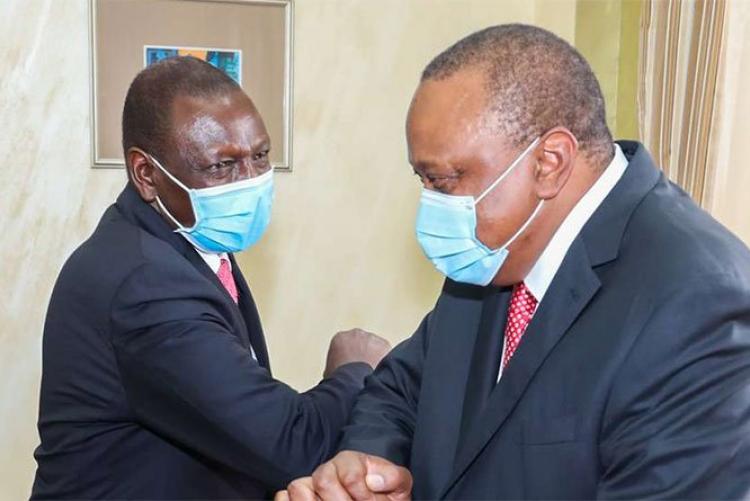President Uhuru Kenyatta Monday directed top State officials to fast-track consultations with key stakeholders for gradual reopening of schools and places of worship as more African countries seek partial lifting of coronavirus disease restrictions.
The Head of State said that the guidelines will include protocols like social distancing and hygiene for learners and worshippers’ safety amid the rise in coronavirus cases.
Kenya closed all learning institutions on March 15 while mosques, churches and temples have been closed for two months.
Other establishments like hotels and restaurants have started reopening under strict safety measures as the government seeks to revive Kenya’s stuttering economy following restrictions to movement including a dusk-to-dawn curfew imposed in late March.
“That conscious of Kenya as a God-fearing nation, I direct the Ministry of Interior and the Ministry of Health to continue and hasten their engagement with religious leaders, with the objective of developing protocols that will be adopted to guide a more participatory way for worship while guaranteeing the safety of worshippers,” said Mr Kenyatta in a televised address to the nation.
“In that regard, and conscious of the emerging trend of infections I direct as follows, that the Ministry of Education fast-tracks and finalises the ongoing consultations with the stakeholders that will provide an appropriate calendar for gradual resumption of education in the country,” Mr Kenyatta said.
The Health ministry projects that infections will peak in August and September, the same period a taskforce appointed by Education Secretary George Magoha says schools will be free to open. The Sarah Ruto-led team made the recommendation, but Prof Magoha reportedly said there is no problem waiting until January.
The ministry says it will proceed with preparations for a smooth resumption of learning once normalcy resumes.
Mr Kenyatta did not comment on the restrictions to movements, especially the dusk-to-dawn curfew and halting of in and out of five counties most affected by the virus, including Nairobi, Mombasa, Kwale, and Mandera.
The extended containment orders will lapse on June 5. Kenya has reported 2,021 positive cases of Covid-19 and 69 deaths. Prof Magoha last month told Parliament that learners would study for longer hours and only close for one week during the August holiday in an effort to compensate for time lost due to the Covid-19 restrictions.
Tanzania Monday become the first East African nation to reopen learning institutions after President John Magufuli allowed universities to resume studies. Secondary and primary schools, however, remain closed with Dr Magufuli saying that they will analyse the infection trend before re-opening secondary and primary schools.
Globally, governments’ have faced stiff opposition in their bids to reopen schools on fears of a surge in infections.
South Korea last week closed hundreds of schools that had been reopened following a spike in coronavirus infections.
South Africa has started partial lifting of a coronavirus lockdown, letting people out for work, worship or shopping, and allowing mines and factories to run at full capacity.
Although schools were ordered to open Monday for the last years of primary and secondary, unions urged teachers and other staff to stay away, saying they were not equipped to keep employees and pupils safe.
The education ministry backed down on Sunday, saying pupils would now return the week after next. Teachers will report this week for training and to receive protective equipment.

